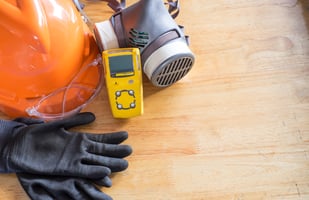We're thrilled to announce the launch of our latest training course at JMS Consultants - the Gas...
Competency Versus Training
In the world of gas detection, understanding the difference between training and competency is vital for ensuring workplace safety and preventing potentially catastrophic incidents. As a gas tester training company that also offers competency assessments, we believe it's essential to shed light on this critical distinction.
Training vs. Competency
Training is the process of teaching a person a particular skill or behaviour. However, simply attending a training session does not automatically make someone competent.
Competency is the ability to perform a task or skill successfully and efficiently. It goes beyond mere knowledge acquisition and requires practical application of skills in real-world scenarios.
The Importance of Competency in Gas Detection
Competency in gas detection is crucial for several reasons:
1. Safety Assurance: Competent individuals are more likely to prevent accidents and respond effectively to potential hazards.
2. Regulatory Compliance: Many industries require demonstrated competency in gas detection to meet safety standards and regulations.
3. Operational Efficiency: Competent workers can perform their tasks more efficiently, reducing downtime and improving overall productivity.
4. Risk Mitigation: By ensuring competency, organisations can significantly reduce the risk of gas-related incidents, protecting both personnel and assets.
Achieving Competency
To achieve competency in gas detection, several steps are necessary:
1. Identify Required Skills: Organisations must first determine the specific skills and behaviours required for each position involved in gas detection.
2. Provide Comprehensive Training: This should include both theoretical knowledge and practical, hands-on experience with gas detection equipment.
3. Assess Competency: After training, individuals should be assessed to determine if they can perform tasks successfully, efficiently, independently, and consistently.
4. Ongoing Development: Competency is not a one-time achievement. Regular reassessments and refresher training are essential to maintain and improve skills over time.
The Role of Competency Assessments
Competency assessments play a crucial role in ensuring that individuals are truly capable of performing gas detection tasks correctly. These assessments typically involve:
- Practical demonstrations of equipment use
- Scenario-based problem-solving exercises
- Questioning to test knowledge
- Observation of performance in real or simulated work environments
By conducting thorough competency assessments, organisations can identify any gaps in skills or knowledge and address them promptly, thereby reducing the risk of incidents occurring due to human error.
Conclusion
While training is an essential first step in developing gas detection skills, true competency is the ultimate goal. It ensures that individuals can apply their knowledge effectively in real-world situations, making critical decisions that can prevent accidents and save lives. By investing in both comprehensive training and rigorous competency assessments, organisations can create a safer work environment and foster a culture of excellence in gas detection practices.
JMS Consultants offer competency assessments, using either ours or your competency assessment criteria.
More information on competency assessments can be found here.







